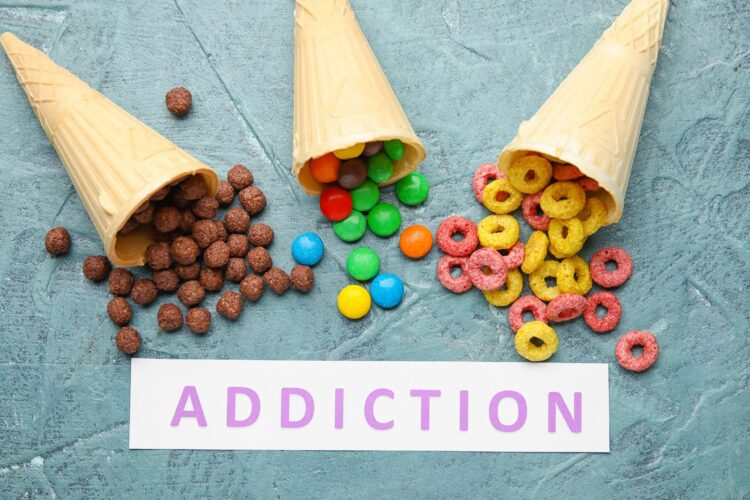When someone in recovery from an addiction to drugs or alcohol replaces one type of addiction with a different one, it is called a substitute or replacement addiction. Almost anyone in recovery faces the chance of developing a substitute addiction. The replacement addiction could be behavioral or substance-based.
Why Do Substitute Addictions Occur?
Over the years, researchers have tried to find a definitive answer as to why many people substitute one addiction for another. Is it due to boredom, the need for relaxation, or the desire to escape? Is it due to some underlying mental health disorder that has not been adequately addressed? Is it a symptom of “dry drunk” behavior? The answer is likely a combination of many of these things. Just as with substance use disorder, a new addiction creates pleasurable feelings. The brain reacts to these feelings and releases dopamine, a neurotransmitter. The brain’s reward center remembers the positive feelings and seeks to experience them again and again.
How to Recognize a Substitute Addiction
Replacement addictions generally fill the same emotional and psychological needs that led to the initial addiction. To fulfill these needs, the person changes addictions.
Substitute addictions have many of the same characteristics as the original addiction. To determine if the new behavior is an addiction, two critical questions are 1) is the behavior compulsive? and 2) is the behavior out of control?
Here are five characteristics to think about when determining if a substitute addiction is developing.
Is the activity, substance, or behavior:
- A “must” or essential part of your everyday routine?
- A way for you to feel a quick “high” or instant gratification?
- A quick way to feel better or get relief when anxiety, stress, or emotional pain occurs?
- Taking a significant amount of time away from family, friends, or responsibilities?
- Being pursued regardless of negative consequences, such as deteriorating relationships, mental or physical health issues, financial problems, or isolation?
Six Tips to Avoid Substitute Addictions
- Educate yourself and your loved ones about recovery and substitute addictions.
- Be alert to any signs of problematic behavior. For example, maybe you always shopped online, but now you are hiding your purchases from loved ones, shopping at unusual hours, and spending much more money than you used to.
- Let someone know if you feel out of control regarding an activity.
- Stay aware of your recovery and work on it every day.
- Find new ways to relieve stress, such as doing something creative, meditating, or exercising.
- Keep in mind that balance in your life is essential for mental wellness.
Addictions Commonly Substituted for Drug or Alcohol Addiction
Sometimes individuals recovering from substance use disorders may substitute an addiction that they think is less harmful than their original addiction. For example, a person who was addicted to methamphetamine or heroin might become addicted to marijuana because they believe it is not as harmful. Or, a person addicted to alcohol may become addicted to smoking cigarettes for the same reason.
Here are ten additional examples of addictions commonly substituted for drug or alcohol addiction.
Exercise Addiction: Getting exercise is an essential aspect of recovery. However, becoming obsessed with exercise and physical fitness can lead to a substitute addiction. People addicted to exercise will engage in the activity even if it is causing mental or physical harm. They may obsess over the behavior and continue to exercise even if they want to stop. They may exercise in secret.
Food Addiction: For many people in the early stages of recovery, food addiction is common. Sugary and fatty foods can cause similar feelings of pleasure in the brain and provide emotional comfort. Food addiction includes overeating, binge eating, and overindulging in a specific type of food, such as fast foods, junk foods, or sweets.
Gambling Addiction: Gambling is risking something of value while trying to get something of higher value. When a person has a gambling addiction, they cannot stop gambling regardless of the negative consequences. Gambling includes all types of betting and games of chance.
Work Addiction: People addicted to work are known as workaholics. Their addictive behavior is workaholism. They often neglect their self-care and relationships because they are obsessed with work.
Shopping Addiction: When an individual has a shopping addiction, they continually buy items they do not need or want. Sometimes the purchases are unaffordable, but the person buys them anyway. They often hide their purchases because they feel ashamed or embarrassed. They cannot stop shopping even if they are damaging their relationships or are in financial trouble.
Several additional examples of substitute addictions are:
- Internet addiction (spending too much time online, staying glued to social media sites)
- Sex addiction (engaging in sex with multiple partners or random people)
- Pornography addiction (looking at porn obsessively)
- Gaming addiction (playing video games to excess)
- Addiction to risky behavior (constantly seeking thrill-seeking activities such as high-speed driving or skydiving)
We Can Help
A chronic brain disease, addiction can affect anyone. If you or a loved one needs help with a drug or alcohol addiction, call Anabranch Recovery Center, located in Terre Haute, Indiana. We will answer your questions and put your mind at ease. At Anabranch, you will receive the care and treatment you need to achieve your goal of living a sober life.




